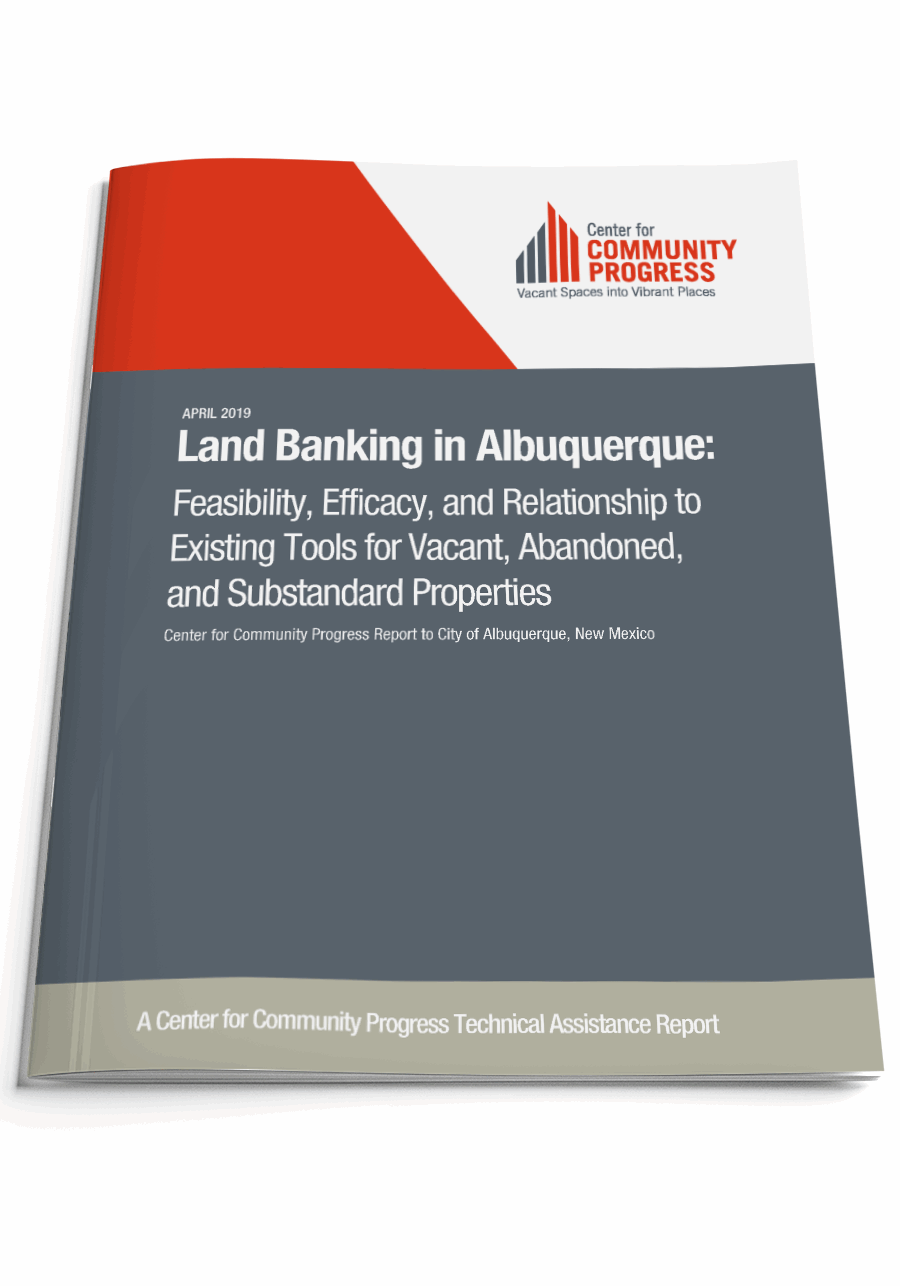Land Banking in Albuquerque
Feasibility, Efficacy, and Relationship to Existing Tools for Vacant, Abandoned, and Substandard Properties
Published: April 2019
Geography: New Mexico, Texas
Author(s): Center for Community Progress
In 2018, the City of Albuquerque engaged the Center for Community Progress to evaluate the feasibility of land banking as a tool to address vacant, abandoned, and substandard properties in Albuquerque.
This report provides the City, County, and community stakeholders with the foundation to understand (1) whether land banking is a feasible or necessary tool to address vacant, abandoned, and substandard properties in Albuquerque; and, if so, (2) what steps need to be taken to ensure this tool is best deployed in an effective, efficient, and equitable manner. Our research and interviews revealed the following key insights:
- In order for land banking or any other tool to be most effective in Albuquerque, local stakeholders need to better coordinate and centralize various data sets.
- The City has both an impressive and progressive set of legal and policy tools in its current toolbox to address the inventory of vacant, abandoned, and substandard properties.
- There is a timely opportunity to leverage the City’s code lien foreclosure process to create a potential pipeline of properties for land banking when those properties are not redeemed and do not sell to private market purchasers.
- The City is not starting from scratch. It has the good fortune to have strong and committed City, County, and community leadership and momentum from the hard work of the Vacant and Abandoned Houses Task Force.
Most land banks throughout the country are created pursuant to state-enabling statutes. These statutes provide special property acquisition and disposition powers, specify land bank governance and operational methods, and authorize land banks to acquire property through special links to the delinquent property tax enforcement system. In the absence of a state- enabling statute, land banking in Albuquerque may be feasible as a City-created program or through a contract with an outside nonprofit community development organization (City Land Banking Program). Further, land banking will only be impactful if founded upon a clear and shared identification of the targeted inventory of vacant, abandoned, and substandard properties in Albuquerque, coordination with other departments and agencies on the deployment of existing legal and policy tools to address those properties, and an appropriate pipeline of insurable and marketable title to properties that may be deposited in a City Land Banking Program.
This report provides observations and recommendations for data collection and analysis, the UHC administration and process, code lien administration and the code lien foreclosure pilot program, the creation of a land banking program, and delinquent tax enforcement.
Subscribe to join 14,000 community development leaders getting the latest resources from top experts on vacant property revitalization.

